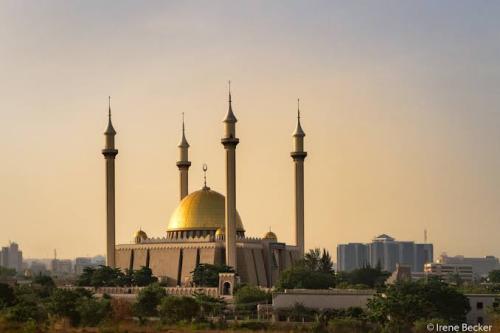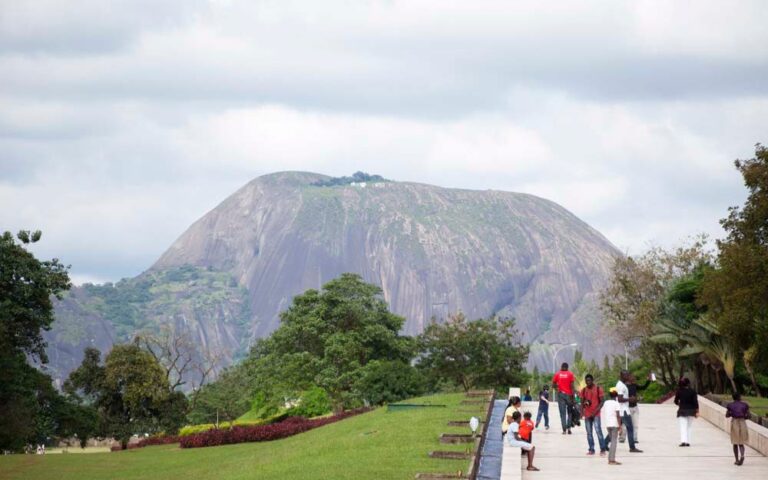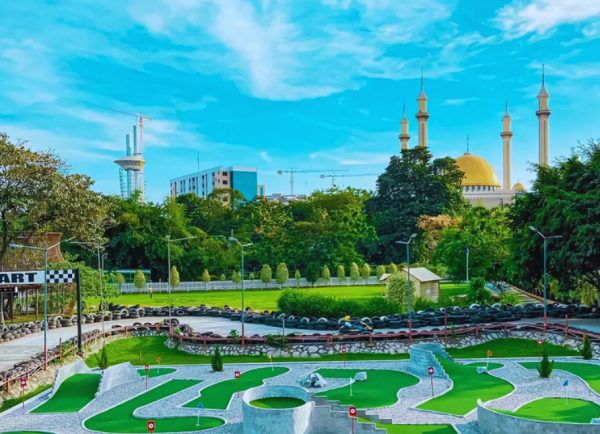Exploring Abuja National Mosque: A Spiritual Landmark
The Abuja National Mosque stands as one of Nigeria’s most iconic spiritual landmarks, symbolizing faith, unity, and architectural brilliance. Located in the heart of the nation’s capital, this grand mosque is not only a place of worship for Muslims but also a significant cultural and historical monument that draws visitors from all over the world. Whether you’re seeking spiritual reflection, architectural beauty, or cultural exploration, the Abuja National Mosque offers a unique experience.
In this article, we’ll take you on a journey through the history, significance, and key features of the Abuja National Mosque, giving you a glimpse of what makes it such a cherished landmark.
History and Significance of the Abuja National Mosque
The Abuja National Mosque, also known as the Nigerian National Mosque, was completed in 1984, shortly after Abuja became the new capital of Nigeria. Its construction was part of the broader effort to establish Abuja as a modern capital city that reflects the diverse cultural and religious heritage of Nigeria.
The mosque serves as the central place of worship for Muslims in Abuja and across Nigeria. However, it also functions as a symbol of religious tolerance and unity, as it shares proximity with the National Christian Centre, reflecting Nigeria’s commitment to respecting and accommodating different faiths.
Architectural Brilliance

One of the standout features of the Abuja National Mosque is its impressive architecture. The design reflects traditional Islamic elements blended with modern architectural techniques, making it a visual marvel. Here are some of its key architectural highlights:
1. The Dome
The mosque is crowned by a massive golden dome that dominates the skyline of Abuja. The dome’s grandeur and striking color make it visible from various points around the city, symbolizing the importance of faith in Nigeria.
2. The Minarets
Four towering minarets surround the mosque, standing at an impressive height. These minarets not only add to the mosque’s majestic appearance but also serve their traditional purpose for the call to prayer.
3. Interior Design
Inside, the mosque features intricate Islamic calligraphy, geometric patterns, and rich ornamentation, all carefully crafted to create a serene and spiritual atmosphere. The spacious prayer hall can accommodate thousands of worshippers, especially during major Islamic events such as Eid prayers.
4. Surrounding Courtyard
The mosque’s courtyard is beautifully landscaped, providing a tranquil space for reflection and gathering. The surrounding gardens and walkways are often used by visitors and worshippers to meditate or socialize after prayers.
Cultural and Spiritual Experience

For both Muslims and non-Muslims, visiting the Abuja National Mosque offers a profound cultural and spiritual experience. Whether you’re coming to pray, attend an event, or simply explore its architectural beauty, the mosque welcomes everyone with open arms.
1. Prayer Services
The mosque is open for daily prayers, including the five obligatory prayers and the Jumu’ah (Friday congregational prayer). Muslims in Abuja frequently visit the mosque to connect spiritually and perform their religious duties.
2. Islamic Festivals
During major Islamic festivals such as Eid al-Fitr and Eid al-Adha, the mosque hosts thousands of worshippers. These gatherings create a vibrant and joyous atmosphere as the faithful come together in celebration and worship.
3. Guided Tours
While the mosque is primarily a place of worship, it is also a popular tourist destination. Non-Muslim visitors are welcome to explore the mosque’s exterior and take in its beauty. For those interested in learning more about Islamic culture and the mosque’s history, guided tours can be arranged, offering deeper insight into its significance.
4. Religious Tolerance
The mosque’s location near the National Christian Center is a powerful symbol of religious tolerance in Nigeria. It stands as a testament to the peaceful coexistence of Islam and Christianity in the country, reflecting the broader ethos of unity within diversity.
How to Visit the Abuja National Mosque
If you’re planning to visit the Abuja National Mosque, here are some practical tips to make your experience smooth and respectful:
1. Dress Code
As a place of worship, modest dress is required for all visitors. Women are typically required to cover their hair, and everyone should dress conservatively, covering their arms and legs.
2. Prayer Times
The mosque is open throughout the day for the five daily prayers. However, non-Muslim visitors are encouraged to plan their visit outside of prayer times to avoid disrupting worshippers. The Friday Jumu’ah prayer is usually the busiest time.
3. Guided Tours
To fully appreciate the mosque’s history and architecture, it’s recommended to arrange a guided tour. These tours often provide a deeper understanding of Islamic culture and the role of the mosque in Nigeria’s spiritual life.
4. Respectful Conduct
As with any religious site, it’s important to behave respectfully during your visit. Avoid loud conversations, and be mindful of worshippers who may be praying or meditating.
Key Takeaways
- The Abuja National Mosque is a central place of worship for Muslims and a cultural icon in Nigeria’s capital.
- Its architectural features, including the golden dome and towering minarets, make it a landmark of both spiritual and aesthetic significance.
- Visitors, whether Muslim or non-Muslim, are welcome to explore the mosque and experience its peaceful and inclusive environment.
- The mosque stands as a symbol of religious tolerance, located near the National Christian Center.
Frequently Asked Questions (FAQs)
1. Can non-Muslims visit the Abuja National Mosque?
Yes, non-Muslims are welcome to visit the mosque. However, they are encouraged to visit outside of prayer times and respect the dress code and conduct guidelines.
2. Is there an entry fee to visit the mosque?
There is no fee for entering the mosque, but guided tours may have associated costs.
3. What is the best time to visit the mosque?
It’s best to visit outside of prayer times, particularly in the morning or afternoon. Avoid visiting during Friday prayers (Jumu’ah), as the mosque will be very busy.
4. Are photos allowed inside the mosque?
Photography is generally allowed in the mosque’s exterior areas. However, it’s important to ask for permission before taking photos, especially during prayer times.
5. How do I arrange a guided tour?
Guided tours can usually be arranged through local tour operators or by contacting the mosque administration in advance.
Final Thoughts
The Abuja National Mosque is more than just a place of worship; it’s a symbol of faith, culture, and unity. Whether you’re a resident of Abuja, a visitor to the city, or someone looking to explore Nigeria’s rich religious heritage, this landmark offers a memorable experience. Its grandeur, peaceful atmosphere, and cultural significance make it a must-visit destination for anyone interested in exploring the heart of Nigeria’s spiritual life.





